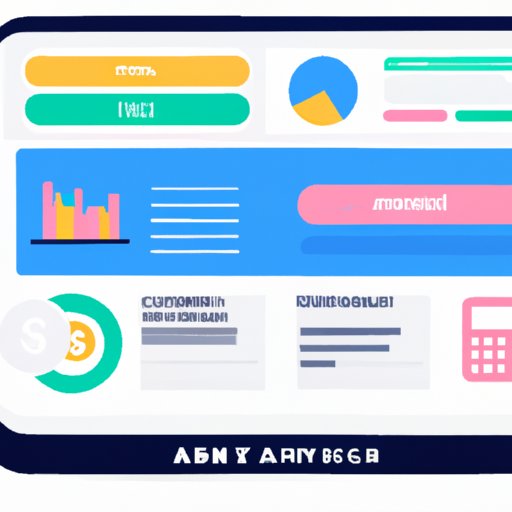Introduction
Financial tracking is an important part of managing your money. It involves setting a budget, understanding your financial goals, monitoring your spending, automating your savings, and more. By keeping track of your finances, you can make sure that your money is being used in a way that will benefit you in the long run.
Create a Budget
The first step in financial tracking is creating a budget. A budget helps you determine how much money you have coming in and going out each month. To create a budget, start by identifying all of your sources of income. This includes wages, investments, and any other forms of income. Next, estimate your monthly expenses such as rent, utilities, groceries, and debt payments. Once you have a good idea of your income and expenses, set reasonable limits for yourself. For example, if you want to save more money, try limiting your entertainment expenses to a certain amount each month.
Set Financial Goals
Once you’ve created a budget, it’s time to set some financial goals. Start by setting short-term goals such as paying off a credit card balance or saving up for a vacation. Long-term goals might include buying a house or starting a business. Having both short-term and long-term goals will help you stay motivated and on track with your financial plan.
Track Your Spending
Another important step in financial tracking is tracking your spending. Make sure to record all transactions, whether they are made with cash, debit cards, or credit cards. Analyzing your spending habits can help you identify areas where you may be overspending. If necessary, make adjustments to your budget or financial goals to ensure that you are staying on track.
Automate Your Savings
In addition to tracking your spending, you should also make sure to automate your savings. Set up automatic transfers from your checking account to your savings account each month. You can also invest in retirement accounts such as a 401(k) or IRA. Additionally, there are many other investment tools available to help you reach your financial goals.
Monitor Your Credit Score
It’s also important to keep an eye on your credit score. Knowing what affects your score, such as late payments or high balances, can help you take steps to improve it. Make sure to check for errors and fraudulent activity on your credit reports. If you find any discrepancies, contact the credit bureau immediately.
Use Money Management Apps
Money management apps can be a great tool for financial tracking. Determine which app is right for you and take advantage of features like budgeting, bill payment, and investment tracking. These apps can help you stay organized and on top of your finances.
Check Your Bank Statements Regularly
Finally, make sure to check your bank statements regularly. Review all transactions and look out for unfamiliar charges. If you see anything suspicious, report it immediately. Keeping an eye on your accounts can help protect you from fraud.
Conclusion
Financial tracking is essential for managing your money and achieving your financial goals. By creating a budget, setting financial goals, tracking your spending, automating your savings, monitoring your credit score, using money management apps, and checking your bank statements regularly, you can ensure that your money is being put to good use.
(Note: Is this article not meeting your expectations? Do you have knowledge or insights to share? Unlock new opportunities and expand your reach by joining our authors team. Click Registration to join us and share your expertise with our readers.)
